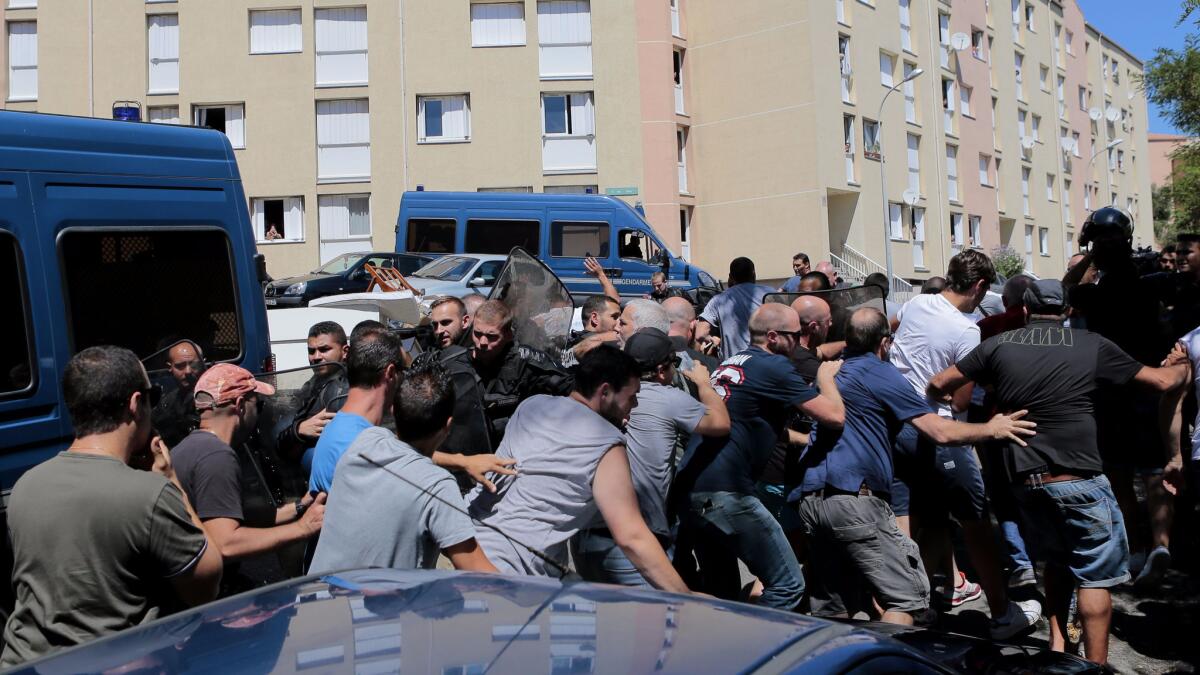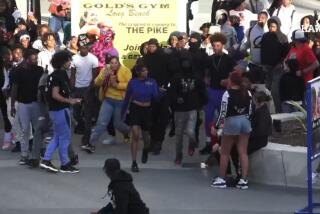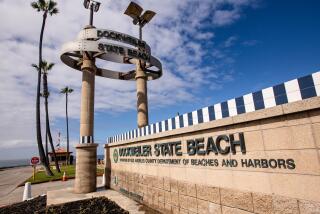Third French city bans ‘burkini’ after brawl at beach

A third French mayor has banned women from wearing “burkinis” after a brawl over the swimsuit broke out between residents of a Corsican village and beachgoers of North African descent.
Around 100 police were called to a beach in the village of Sisco, near the island capital Bastia, on Saturday.
The details of the fight itself are murky. Local press reported that it began when a group of teenagers and their families took photographs of women swimming in so-called burkinis — bathing suits that cover most of the body except for the face, feet and hands, which satisfy Islamic standards of modesty for women.
A girl who witnessed the altercation told a slightly different version of the story: Three men started arguing with a tourist they accused of taking pictures of the women in burkinis. She recounted that version of events at an impromptu rally the following day in Bastia. French media that covered the event did not name her, identifying her only as “a minor.”
The violence escalated when around 40 people from the village arrived and joined the fray. Stones and bottles were thrown, three cars were burned and others had their tires slashed as law enforcement officers struggled to bring the brawl under control.
At least four people were taken to the hospital with injuries. The girl who witnessed the fight said that a boy and his father were stabbed with a harpoon.
The day after the brawl, a group of 200 demonstrators marched on the city’s Lupino district, home to many families of North African descent, shouting “This is our home!”
The public prosecutor has opened an inquiry into the cause of the brawl and for “gang violence.” On Monday, a public holiday, the French interior minister condemned the violence and promised a full investigation into the events.
Afterward, Pierre-Ange Vivoni announced that burkinis would be banned in his area starting Tuesday. He is the third city official to ban the swimsuit, after it was outlawed in the French Riviera resorts of Cannes and Villeneuve-Loubet.
The burkini has become a political and social hot potato in France. Earlier this year, a government minister criticized leading fashion labels for including Islamic dress items in their collections, accusing them of colluding in the “imprisonment of women’s bodies.”
After the Cannes ban, Feiza Ben Mohamed, spokesperson for the Southern Federation of Muslims, told French journalists the ban was not only discriminatory, but played into the hands of the terrorists with whom France is at war.
“Here in France, we have a principle of secularism … but this law concerns only Muslim women,” Ben Mohamed told The Local, an English language website.
“The mayor talks about protecting public order, which means he thinks the presence of a Muslim woman on a beach will cause trouble,” she said. “Yet again it’s ordinary Muslims who pay for the actions of the terrorists even though they have nothing to do with it. It’s exactly what Daesh [Islamic State] wants.”
In 2011, France banned clothing that covered the face, including full veils, in public places. Ostentatious religious symbols are outlawed in public offices and schools. The country has been under a state of emergency, meaning heightened security, since a series of terrorist bombings and shootings in Paris last November that left 130 people dead.
On Saturday, a court in Nice -- where 85 people were killed when an Islamic State supporter plowed a truck through crowds celebrating Bastille Day on July 14 -- upheld the Cannes burkini ban. The judge ruled that “in the context of the state of emergency and the Nice attack “forms of beachwear that indicate belief” were likely to “exacerbate tension” and pose a possible “threat to public order.”
Willsher is a special correspondent.
ALSO
In India, a journalistic expose leads to a criminal complaint — against the journalists
Infertile man allegedly cut wife’s hands off as punishment for not bearing him children
At least 11 dead as airstrike hits Doctors Without Borders hospital in northern Yemen
More to Read
Start your day right
Sign up for Essential California for news, features and recommendations from the L.A. Times and beyond in your inbox six days a week.
You may occasionally receive promotional content from the Los Angeles Times.






